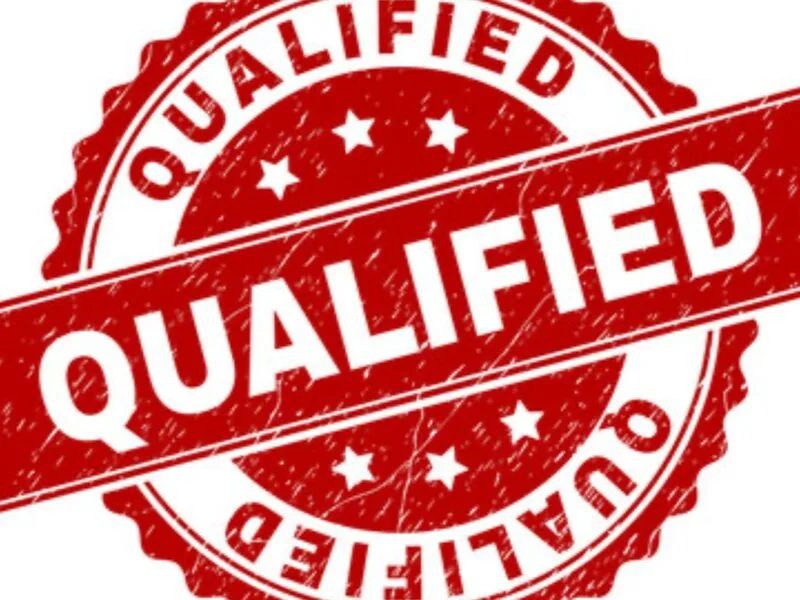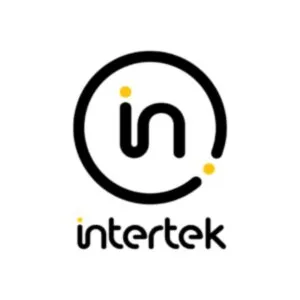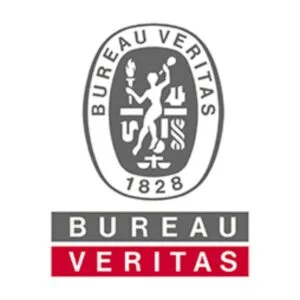
What Makes a Qualified Fabric?
In the textile industry, quality is the foundation of customer satisfaction and brand reputation. A qualified fabric is not just about meeting aesthetic expectations; it must pass strict quality control standards to ensure durability, safety, and performance. At Fabrics-FTY.com and Textile-FTY.com, we firmly believe that quality comes from attention to detail. To guarantee that every meter of fabric meets customer requirements, we work closely with internationally recognized testing organizations such as ITS (Intertek), SGS, and Bureau Veritas.
This article will explore what defines a qualified fabric, the key attributes that make it reliable, the benefits of ensuring quality control, and its various applications.
What is a Qualified Fabric?
A qualified fabric meets strict industry standards and passes multiple quality tests before being approved for commercial use. These tests evaluate factors such as strength, durability, color fastness, shrinkage, chemical safety, and environmental sustainability. A well-manufactured fabric should not only look and feel good but also perform well in different conditions while maintaining safety and compliance with regulations.
Ensuring fabric quality is a multi-step process, including:
1.Raw Material Selection – High-quality fibers form the basis of premium fabrics.
2.Weaving & Knitting Precision – Proper tension and density ensure durability.
3.Dyeing & Finishing Standards – Consistency in color, chemical safety, and functional coatings.
4.Quality Control & Testing – Rigorous inspections in collaboration with SGS, ITS, and Bureau Veritas.
With a focus on detail and rigorous quality assurance, Fabrics-FTY.com and Textile-FTY.com provide fabrics that meet the highest standards, ensuring customer satisfaction worldwide.
Key Attributes of a Qualified Fabric
A fabric must meet several important criteria to be considered qualified:
1. Strength & Durability
A high-quality fabric should resist tearing, pilling, and abrasion. Testing organizations evaluate tensile strength, seam slippage, and wear resistance to ensure longevity.
2. Color Fastness
Color fastness refers to the ability of a fabric to maintain its color without fading after washing, exposure to sunlight, or friction. Standard tests such as ISO 105 determine whether fabrics meet international requirements.
3. Shrinkage Control
Textiles can shrink when exposed to heat or moisture. Qualified fabrics undergo shrinkage testing to ensure minimal size distortion after multiple washes.
4. Chemical Safety Compliance
A certified fabric must be free from harmful chemicals such as formaldehyde, heavy metals, and AZO dyes. REACH, OEKO-TEX, and GOTS certifications verify that fabrics meet global safety standards.
5. Environmental Friendliness
With the rise of sustainable fashion, eco-friendly fabrics have become essential. Qualified fabrics are often produced using GRS (Global Recycled Standard) certified fibers and environmentally responsible dyeing processes.
6. Comfort & Breathability
A high-quality fabric must feel pleasant on the skin and provide good moisture-wicking and breathability properties. This is particularly important for sportswear and activewear.
7. Functionality & Special Treatments
Many fabrics require additional properties such as water resistance, fire retardancy, UV protection, and anti-bacterial finishes. Qualified fabrics are tested to ensure these features perform effectively.
8. Compliance with Global Standards
Fabrics that pass testing by SGS, ITS, and Bureau Veritas comply with industry regulations such as:
• ISO (International Organization for Standardization)
• ASTM (American Society for Testing and Materials)
• EN (European Norms)
• AATCC (American Association of Textile Chemists and Colorists)
Through these certifications, Fabrics-FTY.com and Textile-FTY.com ensure that their textiles meet or exceed industry requirements.
Benefits of Using Qualified Fabric
A high-quality fabric offers significant advantages across various industries:
1. Long-lasting Performance
Premium fabrics maintain their structural integrity and appearance even after prolonged use and multiple washes.
2. Improved Consumer Safety
By complying with chemical and safety regulations, certified fabrics ensure that end-users are not exposed to harmful substances.
3. Better Aesthetic Appeal
High-quality fabrics have a more refined texture, vibrant colors, and a luxurious feel. This enhances the final product’s value and consumer appeal.
4. Enhanced Functionality
Technical textiles designed for specific applications (such as waterproof jackets or fire-resistant workwear) provide additional protection and comfort.
5. Lower Return Rates for Brands
Using qualified fabrics minimizes the risk of customer complaints regarding durability, shrinkage, or color fading, leading to higher brand loyalty.
6. Sustainable and Eco-friendly Choices
With a growing demand for sustainable products, using certified environmentally friendly fabrics helps brands build a positive image while reducing environmental impact.
Applications of Qualified Fabric
Qualified fabrics are essential in various industries and applications, including:
1. Fashion & Apparel
From luxury fashion to everyday wear, high-quality textiles provide better durability, color retention, and comfort.
2. Sportswear & Outdoor Clothing
Breathable, moisture-wicking, and weather-resistant fabrics are crucial for activewear, hiking gear, and windbreaker jackets.
3. Workwear & Protective Clothing
Industrial uniforms, flame-resistant fabrics, and medical textiles must meet strict safety regulations to protect workers.
4. Home Textiles
Premium fabrics for curtains, bedding, and upholstery provide long-lasting beauty and function.
5. Automotive & Aerospace Textiles
Fabrics used in car interiors, airplane seats, and safety gear must pass stringent quality and safety tests.
6. Medical & Hygiene Products
Anti-bacterial and hypoallergenic fabrics are widely used in hospital gowns, surgical masks, and bed linens.
7. Eco-Friendly & Sustainable Fashion
Certified organic and recycled fabrics are increasingly popular among environmentally conscious brands.
By sourcing from Fabrics-FTY.com and Textile-FTY.com, manufacturers gain access to high-performance, eco-friendly, and fully certified fabrics that cater to a wide range of applications.
Ideal Clothing Items for Qualified Fabric
Qualified fabrics are best suited for producing:
•Premium Fashion Apparel – Dresses, suits, blouses, and shirts that require high-quality textiles.
•Sportswear & Athleisure – T-shirts, leggings, and compression wear that demand durability and stretchability.
•Outdoor & Adventure Gear – Jackets, hiking pants, and waterproof garments.
•Industrial & Protective Workwear – Flame-resistant clothing, high-visibility jackets, and medical uniforms.
•Home Textiles & Accessories – Bedding, curtains, and upholstery with high durability.
At Fabrics-FTY.com and Textile-FTY.com, we offer a diverse range of tested and certified fabrics, ensuring excellence in every meter.
#TextileQuality #SGSCertified #SustainableFabrics #HighPerformanceFabric #DurableTextiles #FashionMaterials #EcoFriendlyTextile #FabricsFTY #TextileFTY #PremiumFabric



